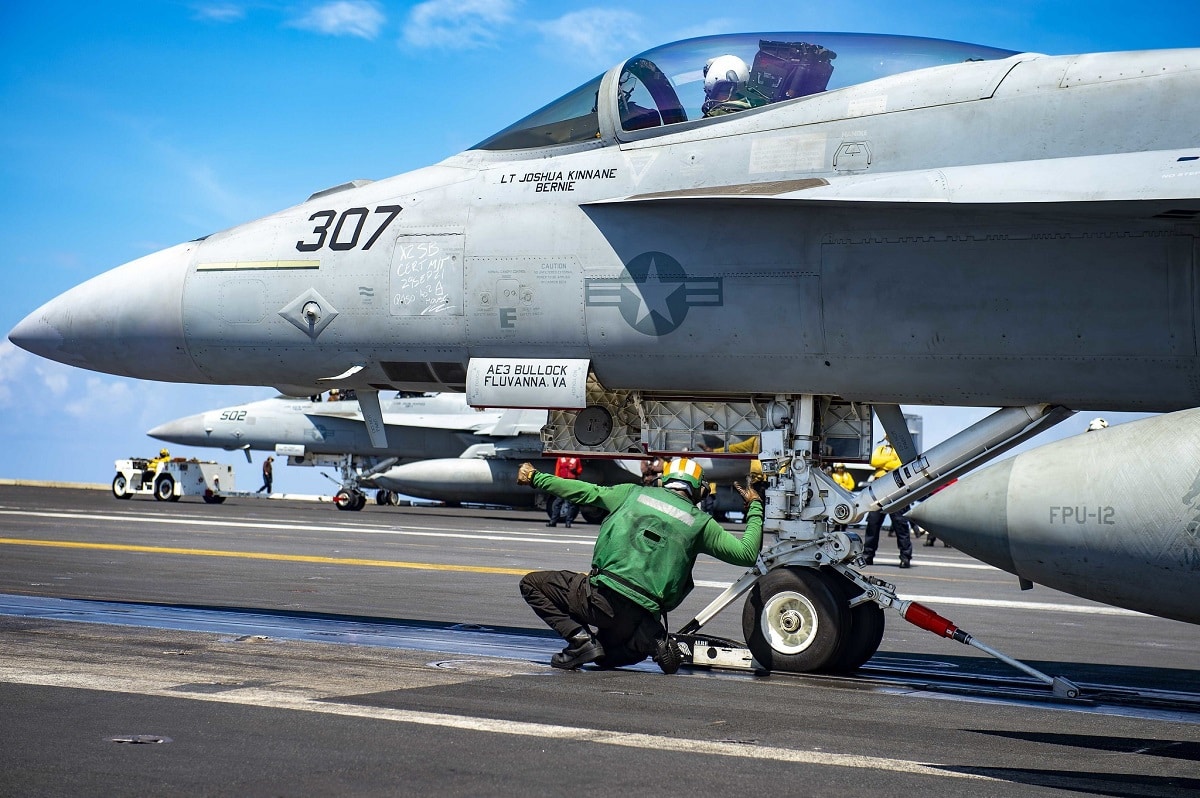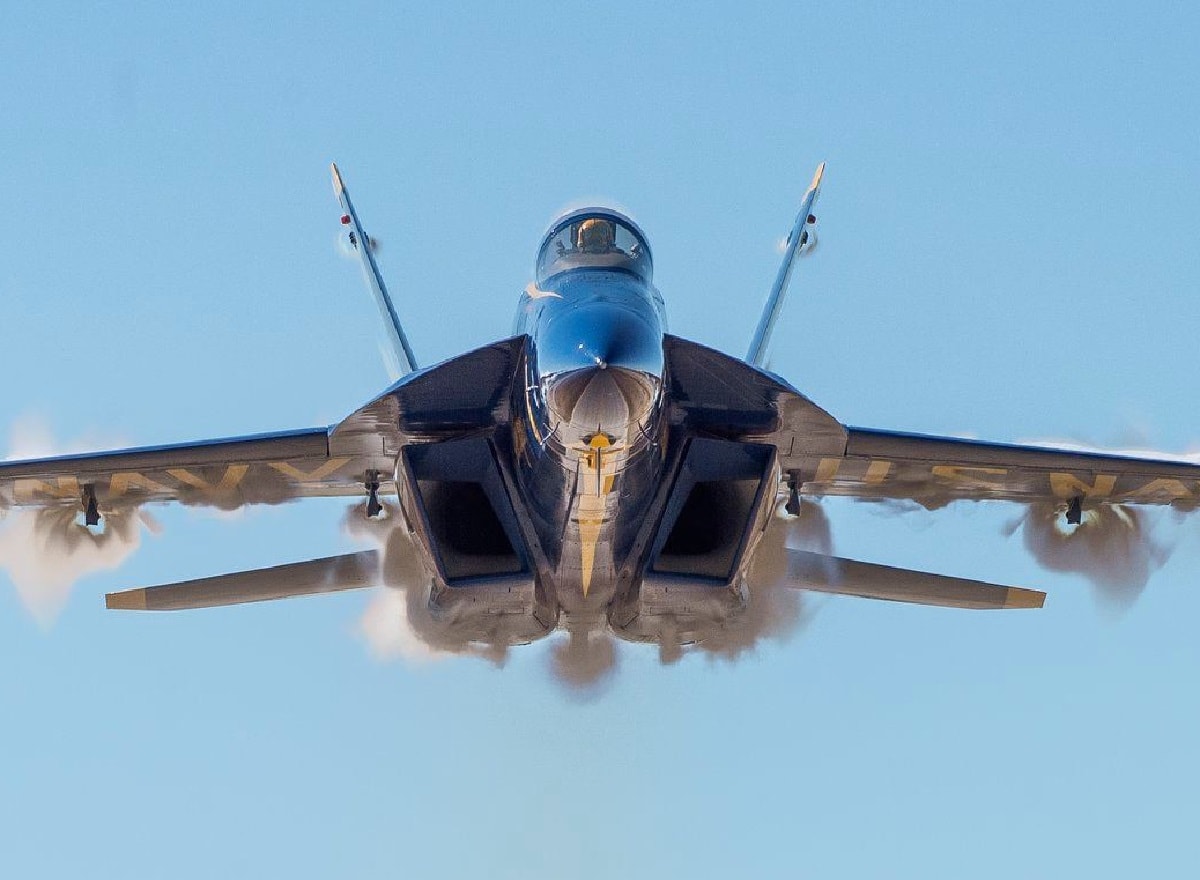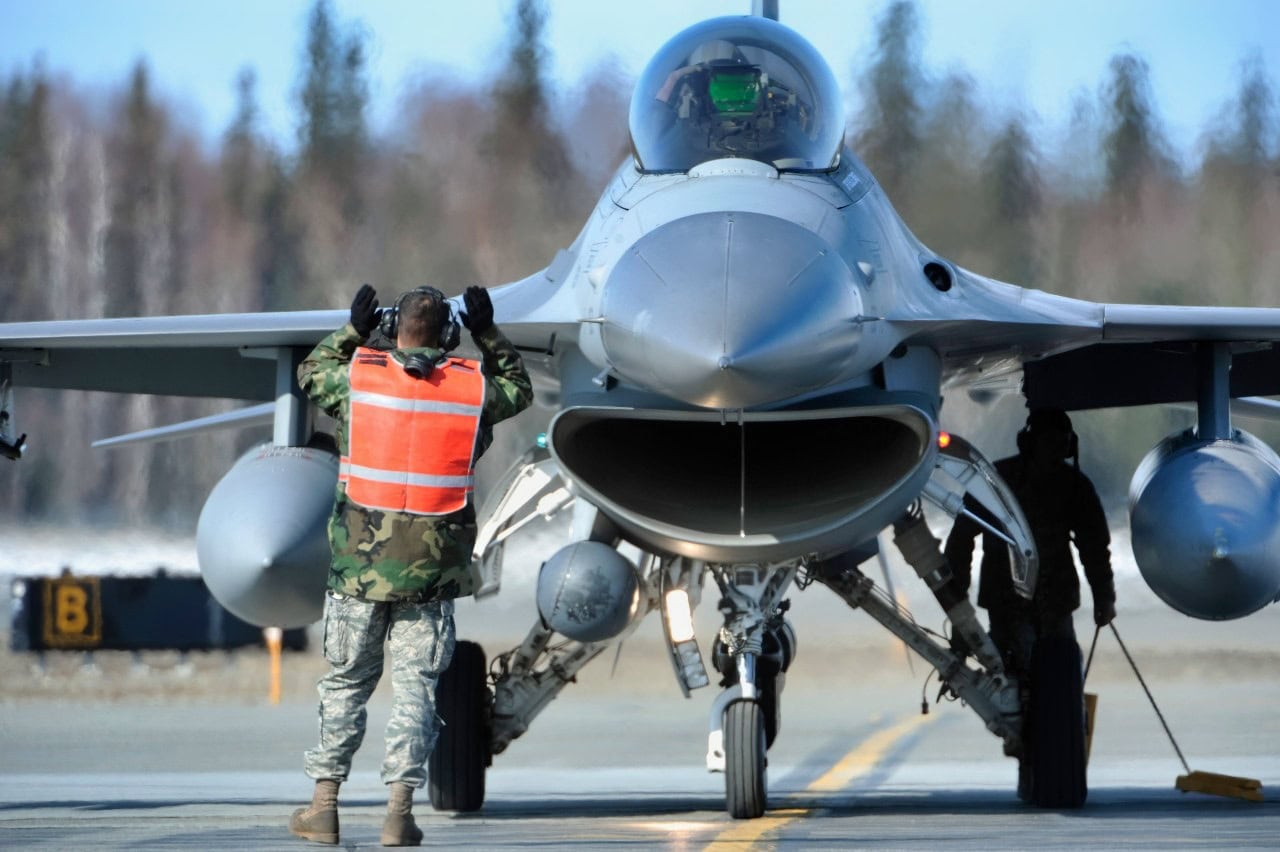If China invaded or even merely blockaded Taiwan, would President Donald Trump deploy the U.S. military to defend the island democracy?
Given his “America First” rhetoric and a foreign policy outlook often caricatured as isolationist, many assume the answer would be no. However, such assumptions misunderstand the strategic logic underlying his approach to Taiwan and the wider Indo-Pacific.

PHILIPPINE SEA (Sept. 29, 2021) An F/A-18E Super Hornet assigned to the “Golden Dragons” of Strike Fighter Squadron (VFA) 192 prepares to launch off the flight deck of the Nimitz-class aircraft carrier USS Carl Vinson (CVN 70), Sept. 29, 2021. The Carl Vinson Carrier Strike Group is on a scheduled deployment in the U.S. 7th Fleet area of operations to enhance interoperability through alliances and partnerships while serving as a ready-response force in support of a free and open Indo-Pacific region. (U.S. Navy photo by Mass Communication Specialist 3rd Class Isaiah Williams) 210929-N-IW069-1057
Let me be clear: I am not a Trump fan. I have serious reservations about his political style and many of his political instincts. But his strategic vision, however sloppily articulated, needs to be assessed on its own terms. And if we do that there are strong reasons to believe that, if pushed, Trump would commit U.S. military force to defend Taiwan.
Why Donald Trump Would Come to Taiwan’s Defense
Trump’s approach to foreign policy has always been framed by a mix of hard-nosed realism and transactional instincts. His America First doctrine is not about isolationism – it is about prioritizing core U.S. interests and avoiding unnecessary entanglements. That means walking away from peripheral conflicts but focusing resources where they matter most.
And when it comes to great power competition, the Indo-Pacific – not Europe or the Middle East – is his primary concern.
The clearest indicator of this shift is Trump’s personnel choices. Elbridge Colby, a key defense advisor and author of The Strategy of Denial, has shaped much of the thinking behind the pivot to Asia. Colby’s view is straightforward: Taiwan is crucial to U.S. defense strategy in the Indo-Pacific, and the U.S. must be willing to fight for it to prevent Chinese regional hegemony. Trump’s decision to surround himself with strategists like Colby is not incidental – it signals where his administration is headed.
Critics argue that Trump’s transactional mindset means he might be tempted to cut a deal with China at Taiwan’s expense, much like some speculate he could do with Russia over Ukraine. This assumption, however, misunderstands both Trump’s strategic priorities and the constraints of great power competition.
While Trump is undoubtedly transactional, his decision-making is not arbitrary. His approach to foreign policy may well be driven by the dynamics of leverage and bargaining – but it is also by a recognition that certain strategic positions simply cannot be traded away without fundamentally weakening U.S. interests.
A Taiwan Crisis Won’t Stay in Taiwan
Taiwan is not just a bargaining chip – it is central to the Indo-Pacific balance of power. If China were allowed to take Taiwan, it would not be an isolated event; it would trigger a cascade of geopolitical consequences, including the erosion of U.S. alliances in the region and emboldening Beijing to press for further territorial gains. Trump, for all his skepticism of traditional alliance commitments, understands that deterrence is based on credibility.
Conceding Taiwan would mean more than just the loss of one strategic asset – it would unravel the very leverage he seeks to maintain in negotiations with China and shift the balance of power in ways that would limit U.S. freedom of action moving forward. For a president who values strength and negotiating from a position of power, that is a price he would be unlikely to pay.
Moreover, Trump’s view of alliances is often misconstrued. He is not opposed to alliances per se – he is opposed to alliances where the U.S. bears the bulk of the burden. Taiwan, unlike many NATO members, has taken its defense spending seriously in recent years – and is planning to invest even more. In that sense, Taiwan aligns with Trump’s expectation that U.S. partners contribute meaningfully to their own defense. This makes it far more likely that he would see Taiwan as an ally worth defending.
Would Trump hesitate in the face of a Chinese invasion? Possibly – but hesitation does not mean paralysis. Trump hesitated before ordering strikes against Syria in 2017, but he ultimately acted because he saw it as a question of American credibility. And credibility matters even more when it comes to Taiwan. From his perspective, if China succeeds in taking Taiwan while the U.S. sits on the sidelines, the U.S. position in the Indo-Pacific would be seriously undermined and Beijing would be emboldened even further.
The risks of war with China are, of course, not trivial. But Trump has demonstrated a willingness to engage in calculated confrontations when he believes core American security interests are at stake. His tariffs on China, pressure on NATO, and diplomatic engagement with North Korea all reflect a willingness to take bold, unconventional steps to alter the regional balance in ways favorable to U.S. interests. Taiwan fits into that pattern.
What About America First?
Some might argue that Trump’s domestic priorities – his focus on trade, immigration, and economic competition – would lead him to avoid a military confrontation over Taiwan. Trump, however, does not view economic and military power as separate; he sees them as interwoven tools of statecraft. For Trump, economic leverage is a means of shaping geopolitical outcomes, and military power is a necessary backing for economic influence.
He sees China not just as a trade adversary but as a strategic competitor seeking to reshape the Indo-Pacific to its advantage. If Taiwan were to fall, it would not just alter the military balance but also give China greater economic dominance over key global trade routes. Thus, defending Taiwan aligns with Trump’s broader approach – using military and economic tools in tandem to prevent China from achieving regional hegemony and gaining a position of greater leverage over the U.S.
The question of whether Trump would seek a grand bargain with China – perhaps offering Taiwan as part of a broader trade or geopolitical negotiation – cannot, of course, be dismissed. His willingness to question long-standing U.S. commitments suggests he might consider such an approach. However, Trump has also demonstrated that when confronted by a major power challenge, he prefers confrontation over accommodation. His hardline stance on trade with Beijing, his push to rebuild the U.S. military, and his explicit rejection of the
“managed decline” school of thought all suggest that he would see Taiwan as a red line rather than a bargaining chip.
Ultimately, Trump’s decision-making is guided by realpolitik, not ideology. He is not committed to Taiwan out of any deep belief in democracy, nor is he shackled to outdated notions of liberal internationalism or upholding the rules-based international order. Rather, he believes in maintaining a strategic balance in the Indo-Pacific, and he understands that allowing China to take Taiwan without consequence would seriously compromise that balance.
That alone is reason to believe that, if it came down to it, he would commit the U.S. military to fight in Taiwan’s defense.
So, would Trump fight for Taiwan? The answer is yes, not despite his “America First” strategy but because of it. His foreign policy is about prioritizing vital U.S. interests and avoiding distractions. Taiwan is a vital interest.

F/A-18 Super Hornet. Image: Creative Commons.
It is not a question of if but when and how he would act – and China knows it.
About the Author: Dr. Andrew Latham
Andrew Latham is a non-resident fellow at Defense Priorities and a professor of international relations and political theory at Macalester College in Saint Paul, MN. Andrew is now a Contributing Editor to 19FortyFive, where he writes a daily column. You can follow him on X: @aakatham.

